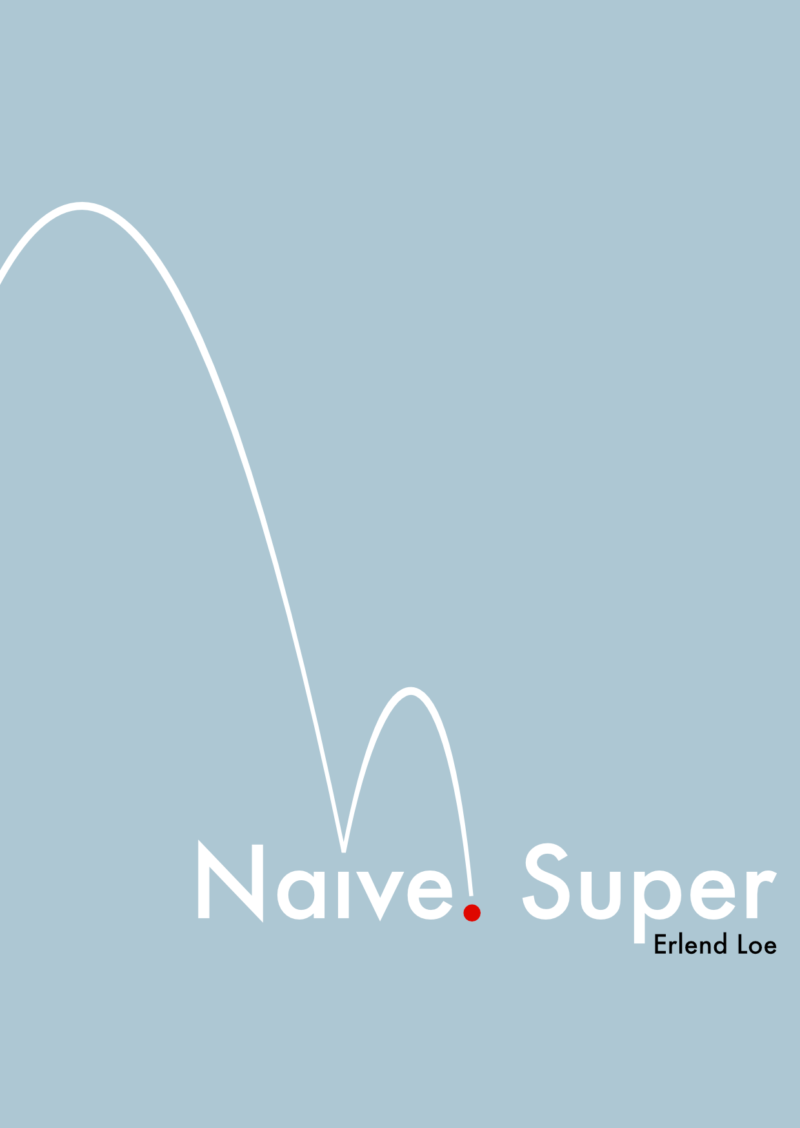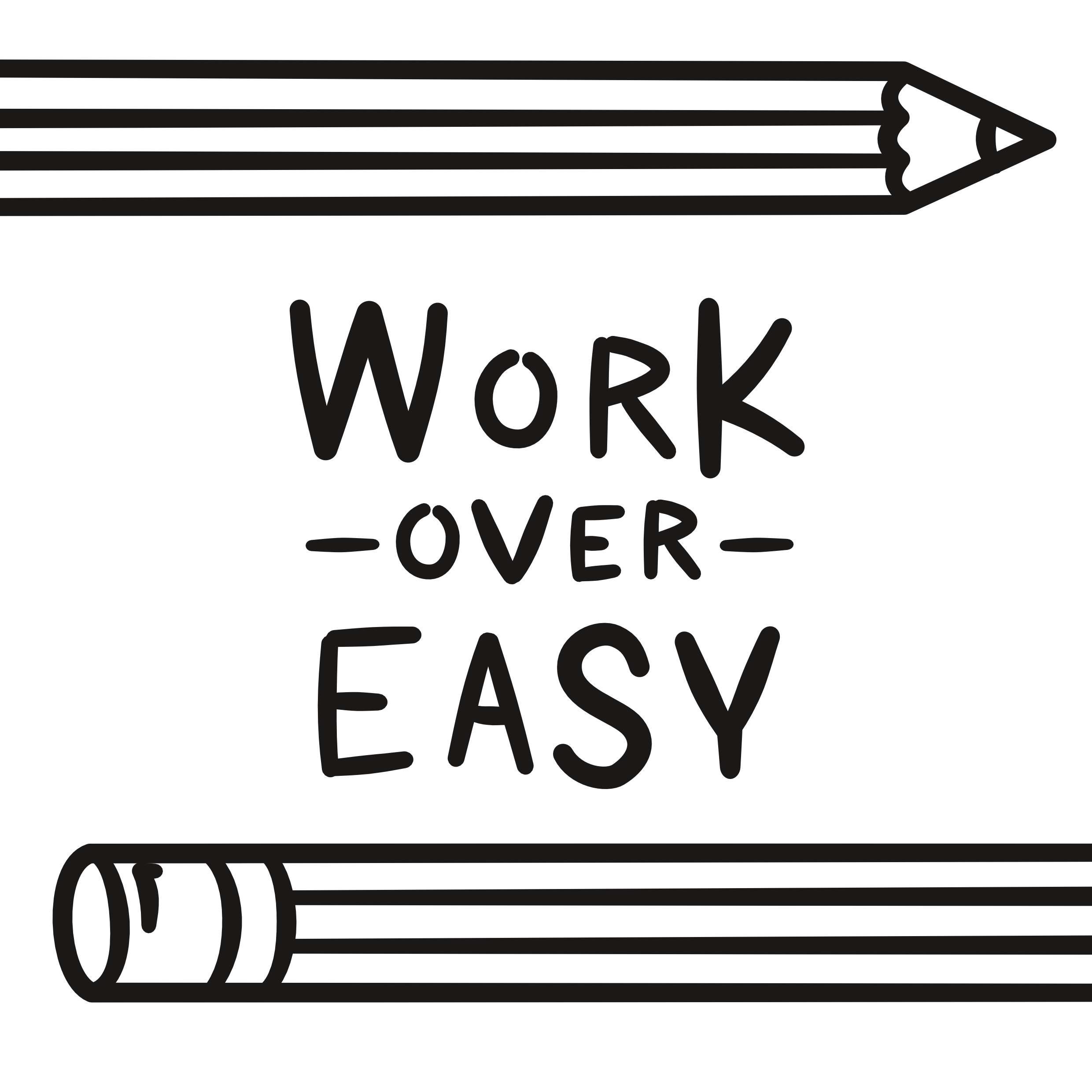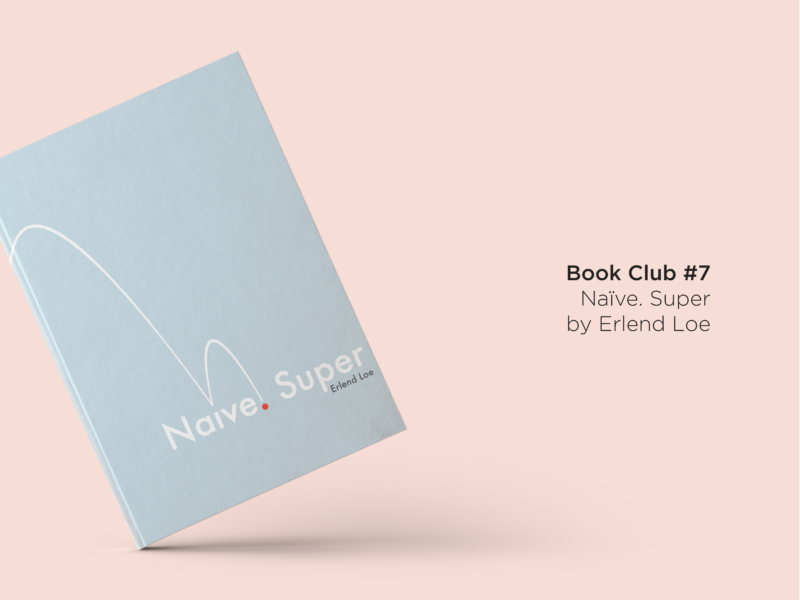I almost picked up a copy of Naïve. Super by Erlend Loe a few years ago. It was a staff recommended read in Waterstones, and its unusual size and simple cover caught my eye. But, for some reason I didn’t buy it. Then, earlier this year, I came across Naïve. Super again, in another recommended reading list, and it brought me back instantly to reading the first page of it in store. So, I got myself a copy, nestled into my favourite reading nook, and got started.
Naïve. Super is the story of an unnamed man having a quarter life crisis. At the age of 25 he has lost his sense of purpose and joy, and so leaves his master’s program and goes to stay in his brother’s apartment while he is away. He has nothing to do all day but send the occasional fax, throw a ball, and mindlessly play with a hammer and peg game. He’s trying to quiet his thoughts, to feel okay, but he’s not quite sure how.
Along the way he befriends a boy named Børre and takes a trip to New York. But all the while his focus moves between the tiny details of the day to day and huge questions of the nature of time and the universe.
It’s a navel-gazing novel, but it never feels like its wallowing. Even when the plot isn’t necessarily moving forward, he has a sense of progression of hopefully looking towards a solution towards a happier future. He’s finding his way rather than being completely lost. That really struck a chord with me. Even if all feels lost, you can look forward and you can still be good. He’s depressed (or at least he seems to be for many of the novel’s pages) but he’s also a good person, who is impacting on so many other lives without even really noticing. That’s what’s heart-warming, at least for me, about this short little novel.

Loe’s prose is remarkably simple. The sentences, like the chapters and the book overall, are simple. The language is simple. The structure is simple. But it never feels unintelligent, or lacking depth. There’s something endearing about the narrator’s voice, just as there is something about how he views the world. That endearing simplicity was what I enjoyed most about this book. It was a much needed 150 pages of respite from books, and quite frankly a world, that are so jaded.
I’m so glad that I waited until now to read it. I think I got a lot more out of it than I would have when I was in my teens. There’s something about its naivety that I really appreciated now, and found almost soothing, that might have irritated me before.
I will say that if you’re looking for a book that’s packed with action or fast paced dialogue, this isn’t going to be one for you. But if you’re looking for something hopeful and reflective, and that can act as respite for a busy mind and a burdened soul, you should probably go and grab yourself a copy.
It’s a little bit weird. It’s a little bit introspective. It’s a little bit philosophical. It’s a little bit sad. It’s a little bit hopeful. And it’s more than a little bit readable.
 SOME QUESTIONS TO PONDER AS YOU READ
SOME QUESTIONS TO PONDER AS YOU READ
- There are a number of reproduced searches and letters in the book, did you enjoy their inclusion? Did the change in reading format add to your reading experience?
- Loe writes in very simple language, how did you relate to the naïve voice of the narrator?
- Naïve. Super is extremely short, are you a long-read or a short-read kind of person?
- If you’re reading Naïve. Super in English, as I did, you’re reading a translation, to what extent do you feel you’re reading the same book as someone in Loe’s native Norway?
- The narrator makes a lot of lists, lists of things that used to make him happy, things that make him happy now, how do his lists compare to your own?
IF YOU WANT SOME FURTHER READING TRY…
There’s not as much out there (in English at least) about Naïve. Super as previous reads, so this list is a little short than the last few book club’s recommended reading lists.
- A short but sweet review from Connor Tomas O’Brien
- A slightly longer read from Odd Things Considered
- A double review of Naïve. Super and Doppler from Litro Magazine
IF YOU WANT MORE BOOKS LIKE THIS HAVE A LOOK AT…
- Haruki Murakami’s The Wind Up Bird Chronicle
- Stephen Chbosky’s The Perks of Being a Wallflower
- Erlend Loe’s Doppler
- Tao Lin’s Shoplifting from American Apparel
- Miranda July’s The First Bad Man
Why not use Naive. Super themed bookmark I designed to keep your place as you read? You can print and download it for free here.
As ever, let me know if you’ve read Naive. Super, or if you have any recommendations for what I should be reading next.



This sounds really good!
http://sugarcoatedbears.blogspot.com/
It really is – let me know if you get round to reading it!